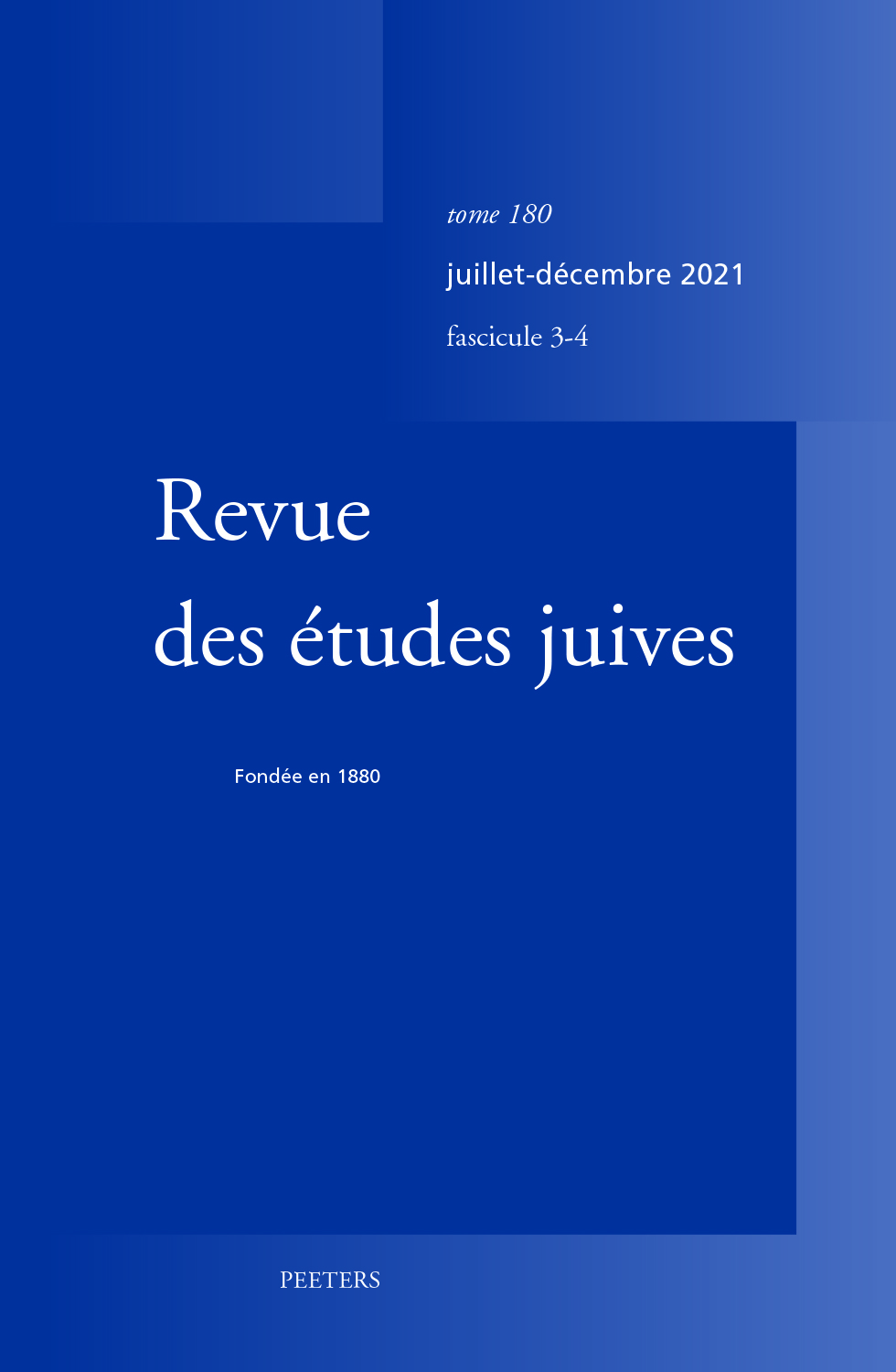next article in this issue  |

Preview first page |
Document Details : Title: Josephus and Nahum Revisited Author(s): BEGG, Christopher Journal: Revue des Études Juives Volume: 154 Issue: 1-2 Date: janvier-juin 1995 Pages: 5-22 DOI: 10.2143/REJ.154.1.519426 Abstract : In 1923 J. Weill published a brief article in REJ in which he suggested emending the text of Nah. 2:9 in light of Josephus' citation of that verse in Ant. 9.239. Inspired by Weill's essay, the present study provides a comprehensive treatment of Josephus' portrayal of the prophet Nahum in Ant. 9.239-242, comparing this with the source text, i.e. Nah. 2:9-14 (as attested by MT, 4QpNah, LXX, and the Targum on the Prophets). Begg devotes special attention as well to the relationship between Josephus' account of Nahum and his presentation of Jonah in Ant. 9.208-214. His findings include the following: Josephus' text of Nah. 2:9-14 appears to have been close to that of MT than to LXX's, but in any case, he freely abridges, rearranges, and modifies the Biblical sequence. Just as in the case of Jonah, Josephus' (highly selective) utilization of the Bible's data on Nahum seems motivated by a concern to make the prophet the mouthpiece of a two-sided message with something gratifying to offer both his audiences, i.e. (Roman) Gentiles and his own Jewish coreligionists. For the former group, 'Assyria', whose coming overthrow Nahum announces in Josephus' quotation, would represent Parthia, Rome's great contemporary rival in the East, while for the latter the same city would symbolize Rome itself, the Jews' oppressor of the moment. |
|


